 W
WChen Maiping is a Chinese-Swedish writer and poet, known by the pen name Wan Zhi (万之). He has written mostly short stories, and has also translated literature from English and Swedish to Chinese.
 W
WChen Wangdao (1891–1977) was a Chinese scholar and educator. He is recognized as the first and only person to translate the Communist Manifesto into Chinese completely so far. He also served as president of Fudan University from 1949 to 1977.
 W
WChen Xuezhao was a Chinese writer and journalist. She was earlier known as Chen Shuzhang or Chen Shuying. She used the pen names Ye Qu, Shi Wei, Xue Zhao and Hui. She was one of the most prolific Chinese women writers of the 20th century. Chen gave her support to Mao Zedong's policy on Art and Literature.
 W
WDai Wangshu, also Tai Van-chou, was a Chinese poet, essayist and translator active from the late 1920s to the end of the 1940s. A native of Hangzhou, Zhejiang, he graduated from the Aurora University, Shanghai in 1926, majoring in French.
 W
WFeng Zhi was a Chinese writer and translator. He was also the director and then honorary director of the Institute of Foreign Literature, Chinese Academy of Social Sciences since 1964.
 W
WFeng Yidai was a Chinese author, editor, and translator. Born in Hangzhou, he studied in Shanghai and thereafter began an illustrious career in publishing and editing. He was denounced as a "rightist" during Mao Zedong's Anti-Rightist Campaign. He was politically rehabilitated after the Cultural Revolution and resumed his literary career. He married the actress and writer Huang Zongying in 1993. A few years before his death, he published his diaries and confessed his secret role as a government spy during the Anti-Rightist Campaign.
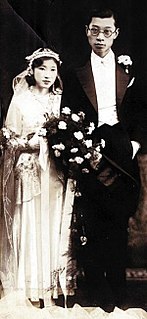 W
WFu Lei, with his renowned rendition of Balzac and Romain Rolland, is China's most respected translator of French literature.
 W
WHe Siyuan, also spelled Ho Shih-yuan, was a Chinese educator, politician and guerrilla leader. Educated in China, the United States, and France, he was an economics professor at Sun Yat-sen University and education minister of Shandong Province. When Japan invaded China in 1937, he organized a guerrilla force to fight the resistance war in Shandong, and Chiang Kai-shek appointed him the wartime governor of the province.
 W
WHua Gang was the president of Shandong University in Qingdao from February 1951 until August 1955.
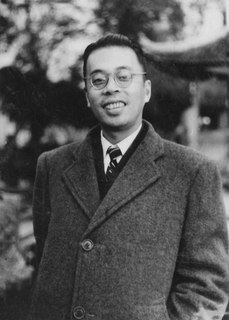 W
WJiang Chunfang was a Chinese translator, educationist, and one of the founders of the Encyclopedia of China. He was born in Changzhou, Jiangsu. He had a number of aliases, including Lin Ling (林陵), Shi Yun (什雲), and Cai Yun (蔡雲).
 W
WLi Da was a Chinese Marxist philosopher. He led the Agitburo after the foundation of the Party. Li Da left the Communist Party in the 1920s due to its reformism. However he maintained close ties with the party and its underground apparatus. Li Da translated many European Marxist works into Chinese. Li Da's most important work was Elements of Sociology, which had a great influence on Mao Zedong. Li Da helped popularize the New Philosophy that gained dominance in the USSR in the 1930s. After 1949 Li Da rejoined the CPC. He was heavily criticized and beaten at the beginning of the Cultural Revolution, and died in 1966. He was posthumously rehabilitated after Mao's death.
 W
WLi Shijun was a Chinese author, editor and translator who elected as a committee member of Akademio de Esperanto since 1983 and reelected in 1992, 2001 and 2010. He was a member of the China Democratic League.
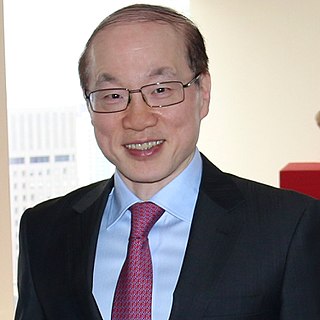 W
WLiu Jieyi is a Chinese diplomat and politician. As of March 2018, he is the current Director of the Taiwan Affairs Office. From 2013 to September 2017, he was China's Permanent Representative to the United Nations (UN) in New York City.
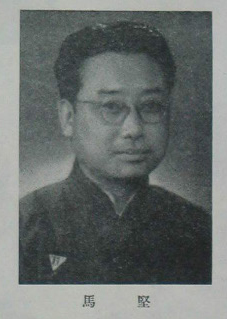 W
WMuhammad Ma Jian was a Hui-Chinese Islamic scholar and translator, known for translating the Qur'an into Chinese and stressing compatibility between Marxism and Islam.
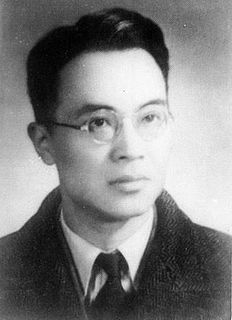 W
WQian Zhongshu, also transliterated as Ch'ien Chung-shu or Dzien Tsoong-su, was a renowned 20th century Chinese literary scholar and writer, known for his wit and erudition.
 W
WShi Jinbo is a Chinese linguist and Tangutologist.
 W
WSun Shengwu, also known as Sun Wei (孙玮), was a Chinese translator and editor.
 W
WTian Han, formerly romanized as T'ien Han, was a Chinese drama activist, playwright, a leader of revolutionary music and films, as well as a translator and poet. He emerged at the time of the New Culture Movement of the early 20th century and continued to be active until the Cultural Revolution, when he was attacked and died in jail before being posthumously rehabilitated by the Chinese authorities in 1979. He is considered by drama historians as one of the three founders of Chinese spoken drama, together with Ouyang Yuqian and Hong Shen. His most famous legacy may be the lyrics he wrote for "March of the Volunteers" in 1934, which were later adopted as the national anthem of the People's Republic of China.
 W
WWang Zhuxi, who had the given name Zhiqi (治淇) and the sobriquet Zhuxi, was a Chinese physicist, philologist, and writer.
 W
WWen Shaoxian, born 4 December 1934) also known as Wan Siu Yin is a literary writer, famous for his short stories about the lives of the new immigrants from the mainland in Hong Kong. He is expert in writing political and historical novels. Wen is a translator and editor by profession and is also a professor of translation and comparative grammar.
 W
WXia Yan was a Chinese playwright and screenwriter, and China's Deputy Minister of Culture between 1954 and 1965.
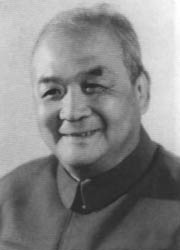 W
WXiao Qian, alias Ruoping (若萍), was a famous essayist, editor, journalist and translator from China. His life spanned the country before and after the establishment of the People's Republic of China.
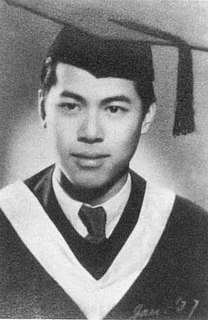 W
WXu Shunshou was a Chinese aircraft designer and a founder of the aircraft manufacturing industry in the People's Republic of China. He was the founding director of the PRC's first aircraft design organization, where he oversaw the development of the Shenyang JJ-1, the first jet aircraft designed in China. He trained many of the country's top aircraft designers and also participated in the design of the Nanchang CJ-6 trainer, the Nanchang Q-5 jet attack aircraft, and the Xian H-6 bomber. He was severely persecuted during the Cultural Revolution and died at the age of 50.
 W
WXu Yuanchong is a translator, best known for translating Chinese ancient poems into English and French. He has been a professor at Peking University since 1983.
 W
WYan Lianke is a Chinese writer of novels and short stories, based in Beijing. His work is highly satirical, which has resulted in some of his most renowned works being banned in China. He has admitted to self-censorship while writing his stories in order to avoid censorship.
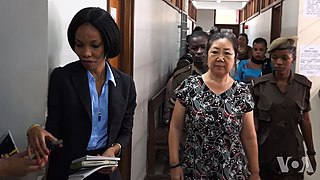 W
WYang Fenglan is a Chinese businesswoman who has been convicted of smuggling ivory. She was formerly based in Tanzania and is nicknamed by the media as the "Ivory Queen".
 W
WYang Gang, also known as Yang Bin (杨缤), was a Chinese journalist, novelist, and translator. She gained prominence reporting for the influential newspaper Ta Kung Pao during the Second Sino-Japanese War, and was considered one of the top four female journalists in China. After the Communist victory in China she served as Premier Zhou Enlai's secretary and later Deputy Chief Editor of the People's Daily. She committed suicide in October 1957, after being forced to persecute her colleagues during the Anti-Rightist Campaign, although the exact reason for her suicide remains undetermined.
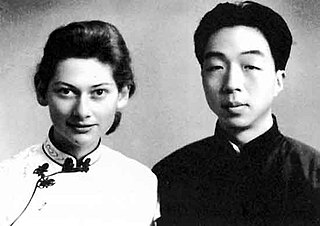 W
WGladys Yang was a British translator of Chinese literature and the wife of another noted literary translator, Yang Xianyi. She was born at the Peking Union Medical College Hospital, Beijing, China, where her father was a Congregationalist missionary, and where from childhood she became intrigued by Chinese culture.
 W
WYang Jiang was a Chinese playwright, author, and translator. She wrote several successful comedies, and was the first Chinese person to produce a complete Chinese version of Miguel de Cervantes' novel Don Quixote.
 W
WYang Xianyi was a Chinese literary translator, known for rendering many ancient and a few modern Chinese classics into English, including Dream of the Red Chamber.
 W
WZhou Jianren was a politician and biologist of the People's Republic of China. He was the younger brother of Lu Xun and Zhou Zuoren. When the office of the Chairman of the Standing Committee of the National People's Congress was vacant in 1976, Zhou was one of the 20 vice chairmen who administered the position. He also served as the chairman of China Association for Promoting Democracy and the governor of Zhejiang Province. He was a member of the 10th and 11th Central Committees of the Communist Party of China.
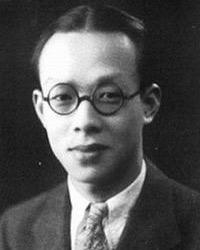 W
WZhou Youguang, also known as Chou Yu-kuang or Chou Yao-ping, was a Chinese economist, banker, linguist, sinologist, publisher, and supercentenarian, known as the "father of Pinyin", a system for the writing of Mandarin Chinese in Roman script, or romanization, which was officially adopted by the government of the People's Republic of China in 1958, the International Organization for Standardization (ISO) in 1982, and the United Nations in 1986.
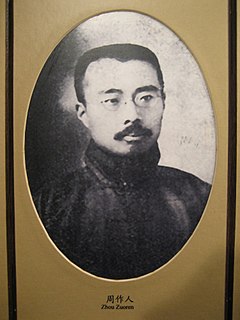 W
WZhou Zuoren was a Chinese writer, primarily known as an essayist and a translator. He was the younger brother of Lu Xun, the second of three brothers.
 W
WZhu Guangqian was one of the founder of the study of aesthetics in 20th-century China.
 W
WZi Zhongyun is a Chinese translator and historian who is an expert on US studies with the Chinese Academy of Social Sciences. She is proficient in English and French.